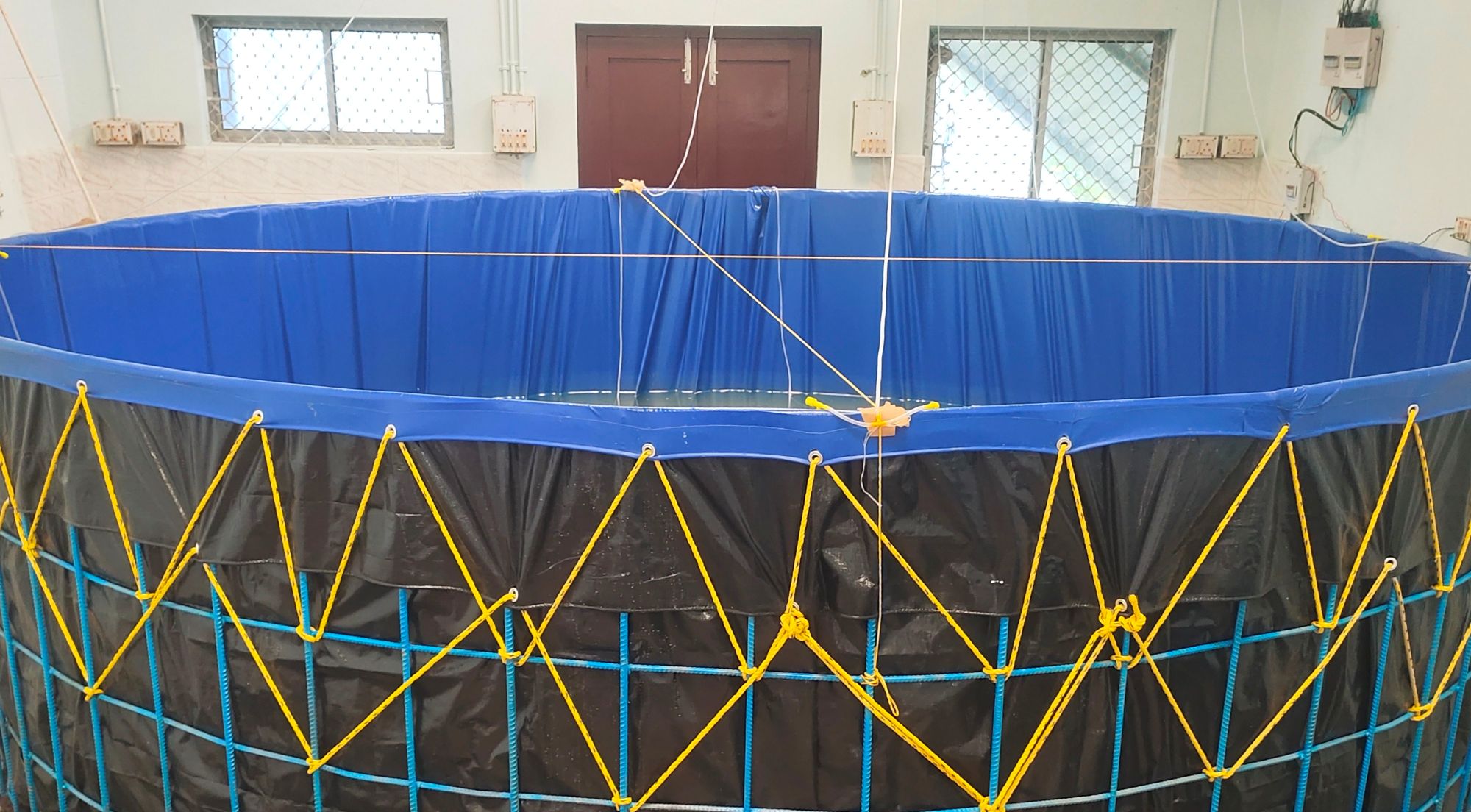Indoor biofloc system for freshwater aquaculture

In Andaman and Nicobar Islands, freshwater fish culture possess immense scope for development however, the sector is dented with issues such as lack of scientific fish culture practices, unavailability of adequate fish ponds for culture, limited supply and availability of quality fish seeds, improper feeding practices, adverse weather and uncertain water availability. In order to develop the aquaculture sector towards the path of sustainability, the aquaculture diversification practices are the need of the hour in the Islands to augment freshwater aquaculture sector and to increase the fish production to cater the local demand and to tap the market potential. Biofloc culture technology is an intensive culture practice which can be adopted by the farmers with limited land and water availability. Biofloc culture could also promote species diversification practices in Island conditions as the technology is much suitable for hardy fishes like Tilapia. As outdoor culture practices in the Islands are highly influenced by adverse weather conditions such as heavy rainfall, cyclones, storms and periodic dry spell, an indoor Biofloc unit was developed for culture of candidate species like Tilapia. The model can be adopted by the entrepreneurs of the Islands for better space utilization, to promote species diversification with intensive aquaculture practices.
Benefit:In bio floc systems, water utilization remains much optimal and the system remains under controlled conditions leading to less pollution and disease incidences. Biofloc are also good for managing wastes and nutrient retention in the systems. Biofloc systems can give increased production and better land utilization pattern.
Source : Contact person with Name, Designation e-mail and phone no: R Kiruba Sankar, Scientist, Division of Fisheries Science rkiruba.sankar@icar.gov.in; Mob. 9531830514
